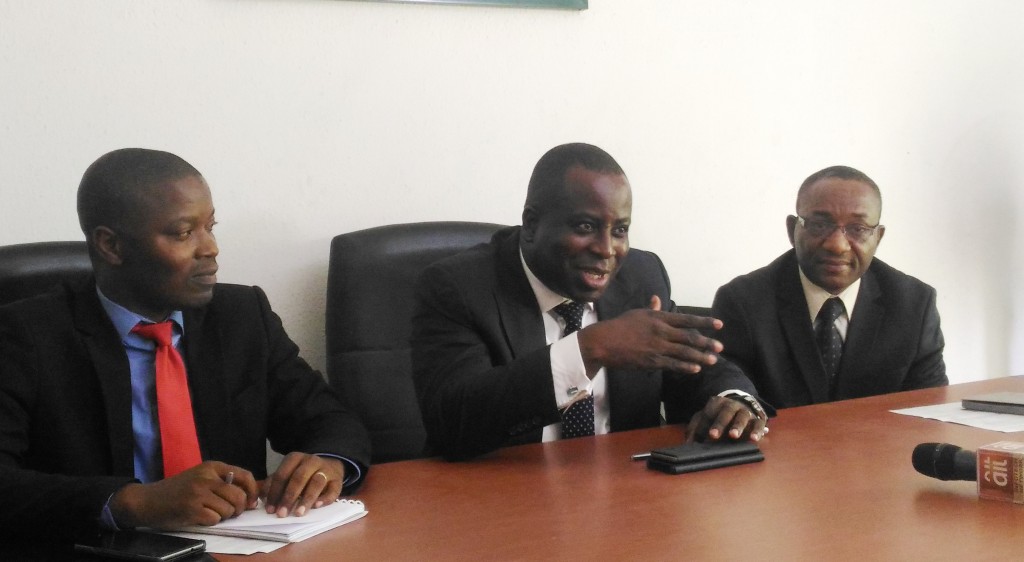The President of Association of telecoms Companies of Nigeria (ATCON), Engineer Olusola Teniola, has opened up on the key challenge frustrating the effective delivery of broadband services across the country by all the licenced Infrastructure Companies (Infracos).
Infracos are companies licenced by the Nigerian Communications Commission (NCC) to drive provision of fibre optic infrastructure across the federation in line with the running of Open Access Model (OAM) which was adopted by the regulator in the propagation and achievement of National Broadband Plan (NBP).
Business Hilights recalls that in January 2015, MainOne Cable Company and IHS secured the first two Infraco licences for Lagos State and the North Central Zone, respectively remaining five remaining zones including North East, North West, South East, South West and South South.
Only recently, the board of the Nigerian Communications Commission (NCC), issued two additional Infrastructure Company (Infraco) licences to Zinox Technology Limited for Southeast, and Brinks Integrated Solutions Limited for Northeast making the total number of Infracos licenced so far to four.
Other remaining zones have also been given out, but none of the Infracos have achieved any reasonable feat due to issues bordering on Right of Way (RoW).
Industry analysts’ say the regulator and or the country may be shortchanging itself if it continues to behave as if issues concerning RoW and Infracos should not be given a presidential attention or declaration of state of emergency if the crusade on broadband penetration is anything to go by.
In an exclusive interview with Business Hilights editorial team in Lagos, Teniola averred that even though NCC has given out almost all the regional Infraco licences, the companies are really finding it hot to penetrate several states due to issues of RoW.
“However as we know from the first two licenses that they gave, there are issues around RoW because it is particularly troublesome in certain states”
“We already know from the track record of one of the licensee that they have not rolled out a single fibre under the Infraco programme. So, they claim they have a thousand kilometre of fibre sitting in the warehouse.

According to him, “We have a situation, the licensing of Infracos seems to be or appears to be the easiest part of the implementation of the NBP; the more difficult part is to actually harmonize and work with different governors and states to ensure that access to permits which are purely RoW are given in a flexible manner and at an affordable price”.
“Now when the licenses were given by NCC, I believed that there was an underlining assumption that the RoW will not be problem but as it stands now, it seems that it is not as we thought that it will be.
ATCON boss noted that “In fact, now it is a very big setback or the big obstacle in achieving the rollout of infrastructure. So, we need NCC to not only give out the licenses which they have done and we are grateful that they have done it, even though it is late, but in reality, they need to work with each states, each governor to ensure that the licensees are not frustrated in rolling out this infrastructure”.
“Otherwise, at the federal level where NCC operates, they now need to carry along at the state level those that are responsible, whether it is the ministry of works within the state to work alongside the operators to ensure that RoW is given as soon as the licenses are given approval to by the NCC.
“The case as it is at the moment, is that NCC has gone ahead to give the Infracos licenses, but has not gained approval from the states on the very much needed RoW, which is important to the operators, because now, it is the RoW that is causing the delay.
“This is because, once an operator has gets an Infracos license, the company goes to states in its region of operations to negotiate the RoW, which can take a long time or fail in some cases.
“But whatever the case maybe, there have to be flexibility on the side of government to enable infrastructure to be rolled out before taxes are requested, because it is the outcome of the infrastructure that will generate the revenue and income which the state can then tax in terms of increased employment, in terms of increased revenues from sources of income that are over and beyond connectivity like e-commerce and so on.
So, there is need for a strong interface between the NCC and states governments or relevant agencies at states levels to achieve the target of Infracos.
In his further submission, ATCON President argued that “What comes first is that we want NCC to work with not only the ministry of finance in terms of harmonising the taxes, but also state ministries, departments and agencies to especially make sure that permits are given in a more affordable rate so that Infracos can go to work and deliver the needed infrastructure that will drive the nation’s target in digital economy”.








